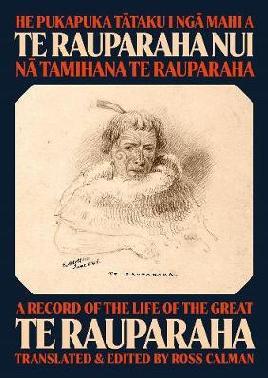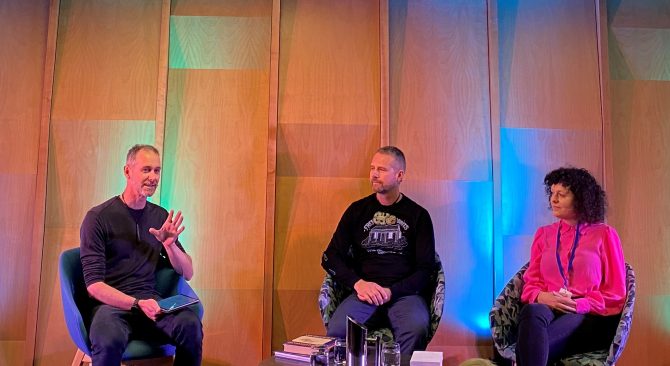Do you like to read works translated from a language other than your mother tongue? How can words cross borders? What do translators think about their job?
Polly Barton (UK) and Ross Calman (Ngāti Toa, Ngāti Raukawa, Ngāi Tahu) shared their thoughts on translation at a panel session of WORD Christchurch Festival 2023 on 26 August.
 The conversation started with their relationship to the second language. Ross was driven to connect with Te Reo Māori through his personal journey of self-discovery and finding his whakapapa. Polly went to Japan and worked in a language teaching programme.
The conversation started with their relationship to the second language. Ross was driven to connect with Te Reo Māori through his personal journey of self-discovery and finding his whakapapa. Polly went to Japan and worked in a language teaching programme.
Initially, they just considered how to sustain themselves in an environment where they knew little about the language. Ross recalled regularly visiting a Te Reo Māori community group in which English was forbidden. For Polly, her experience of the first few months in Japan was thrilling. Basic life events like posting a letter could be very challenging due to her limited level of Japanese proficiency.
The journey from self-sustaining in a language to becoming a translator is full of pleasure and frustration. However, the motivation to learn the language is decisive. Ross realised he had a responsibility, as a Māori descendent, to rescue his heritage and culture for future generations.
As translators, how do they define the work of translation? Polly believes that translation is not swapping a word from one language with a word from another language. Socio-cultural and contextual differences have a significant influence on how translators deal with languages. Ross emphasised that the cultural packaging in which the language came from was the key for translation. From their viewpoints, translation is both a technique and an art.
The interesting part of the conversation is about the influence of AI in translation. Ross amusingly recalled a suggestion that he fit his translation work into the software system to improve AI translation. Polly held that it was impossible for AI to learn from a human being in terms of translation. According to them, translation involves an emotional aspect and a process of embodiment.
To illustrate how they catch the rhymes and sounds in translation, Ross and Polly read an extract of translated work from their book respectively. During the Q&A session, the members of the audience further explored the role of AI in the field of translation and what is lost and found in poetry translation. This session concluded with a summary of the role of the translator in bridging gaps between different cultural understandings lost in the text.
Find out more
- WORD Christchurch website and 2023 programme
- Our WORD Christchurch 2023 page
- Follow @WORDChCh on Twitter
- Follow WORDchch on Instagram
- Like WORD Christchurch on Facebook
- Photos from WORD Christchurch 2023




Add a comment to: WORD Christchurch 2023: Lost and Found in Translation